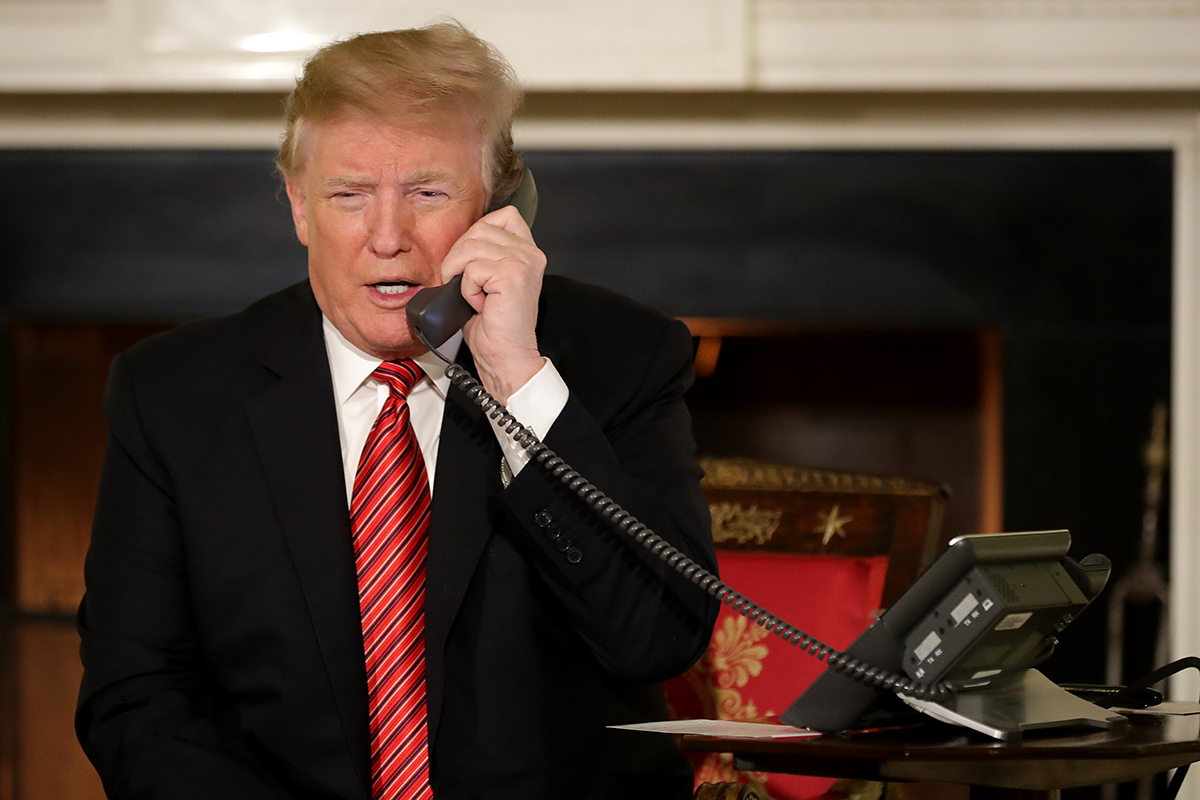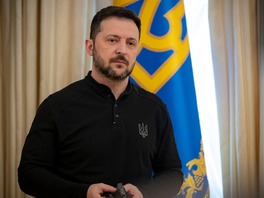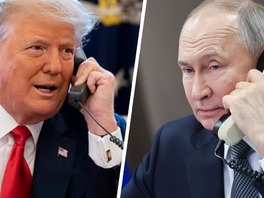As Ukraine’s President Volodymyr Zelensky met with Donald Trump in New York, the White House released the transcript of the scandalous July 25th phone call between the two leaders. A whistleblower’s complaint claimed that the White House “tried to hide the Trump-Zelensky call transcript”. According to BBC, the transcript was not stored according to the usual procedure but instead was saved to a separate “classified information of an especially sensitive nature” system.
The majority of the House has supported an impeachment inquiry.
Trump: “I would like you to do us a favor”
While Donald Trump dismissed the call as purely casual and appropriate, the conversation included a plethora of concerning moments and a clear power dynamic. In his semi-subtle manner, Trump both hinted at the lack of reciprocity in US-Ukraine relations and directly asked Zelensky to investigate the Biden scandal. President Zelensky’s response was diplomatically flawed, yet cooperative.
Volodymyr Zelensky started the phone conversation by praising Trump as a great teacher, noting how he learned a lot from his US counterpart.
Donald Trump, in turn, took the liberty to describe how America spends “a lot of effort and a lot of time” to aid Ukraine. “…the United States has been very very good to Ukraine,” he said, adding, “I wouldn’t say that it’s reciprocal necessarily…” With this, the US president indicated at Ukraine failing to launch another investigation – or rekindling an old one – on Joe and Hunter Biden, as well as the alleged collusion between Ukraine and Hillary Clinton in 2016.
After Zelensky admitted that America has been a much bigger partner to Ukraine than the EU, the Ukrainian leader expressed his country’s gratitude for all of the USA’s support in the area of defense. Donald Trump immediately followed this up with a favor request, thus highlighting the power dynamic between the two.
“I would like you to do us a favor though because our country has been through a lot and Ukraine knows a lot about it,” he said. “Whatever you can do, it’s very important that you do it if it’s possible,” Trump added. When scrolling down the transcript further, it becomes clear that he implies the aforementioned investigations on Biden and Crowdstrike.
In response, Zelensky noted that one of his assistants had recently spoken with Giuliani – potentially referring to his aide Andriy Yermak, who talked to Rudy Giuliani around July 11th. The Ukrainian president subsequently invited Trump’s personal lawyer to Kyiv. “…We are hoping very much that Mr. Giuliani will be able to travel to Ukraine and we will meet once he comes to Ukraine,” he said.
“Good because I heard you had a prosecutor who was very good and he was shut down and that’s really unfair,” Trump referred to Shokin, the Prosecutor General who was forced to resign after intense pressure from the West – and Biden specifically.
As “Apostrophe” reported earlier, Shokin was widely criticized both in Ukraine and abroad for not solving corruption cases and slowing down reforms. Shokin’s very deputy, Vitaliy Kasko, resigned in February 2016 due to corruption allegations within the Prosecutor General’s Office. The International Monetary Fund, in turn, warned Ukraine that the country might lose its financial support unless it takes firmer actions against corruption.
The US president and Giuliani have been vehemently accusing former Vice President Biden of abusing his position to remove Shokin in order to aid his son, Hunter, who served on the board of a Ukrainian gas company Burisma Holdings. After the Revolution of Dignity, Burisma’s owner faced a series of criminal charges.
In another previous article, “Apostrophe” explained why the accusations against Joe Biden do not match Trump and Giuliani’s narrative.
Returning to the phone call, Donald Trump repeatedly told Zelensky he would ask Giuliani and Attorney General Barr to call the Ukrainian president to enable further cooperation.
President Zelensky, in turn, ensured Trump that the new prosecutor general would be 100% his man and would “look into the situation”.
While the transcript shows no direct blackmail, it is only logical that explicit threats aren’t necessary for Trump to achieve the desired results. With Ukraine highly relying on US support, its aid becomes unspoken leverage which Trump can use in his advantage. By requesting a “favor” directly after Zelensky mentions his gratitude for America’s help, Trump unceremoniously provokes an obedient reaction out of the Ukrainian president. At the same time, Volodymyr Zelensky made the mistake of expressing his dissatisfaction about the EU to Trump – all the while agreeing to the further investigations Trump requested. Logically, this triggered a stream of negative reactions from European leaders
“Ukrainegate”: an ambiguous timeline
The events that occurred before and after the call on July 25th, however, remain a mystery to be unraveled.
Firstly, it’s worth noting that Trump’s reply to a journalist asking why he was cutting aid to Ukraine was a very undiplomatic "Why would you give money to a country that you think is corrupt?"
It’s contradictory for this allegation of corruption, and subsequent distrust, to not play a part in his decision to push Zelensky for further investigation in the Biden issue.
Reportedly, Andriy Yermak, Zelensky’s top aide, had his first call with Trump’s confidant Rudy Giuliani around July 11th. One can suppose that the conversation went well, as Zelensky referred to it during the phone call with the US President.
Yermak and Giuliani then met in Madrid, Spain, in either late July or early August – days after the prosperous Trump-Zelensky call. Allegedly, the two investigations were discussed during this meeting.
On August 12th a whistleblower filed a complaint which was said to involve multiple “troubling” events, including a phone call on July 25th. It has been reported that the transcript wasn’t stored according to the usual procedure, being saved to a separate “classified information of an especially sensitive nature” system instead. The whistleblower claims the White House attempted to hide the transcript.
The news of the aid freeze broke on August 28th. At the time, Donald Trump’s national security advisor John Bolton visited Kyiv. Bolton reassured Ukraine of the USA’s continuous support and met with some of the country’s top officials, such as Oleksandr Danylyuk, the current Secretary of the National Security and Defense Council.
Interestingly, when describing the meeting on August 27th, Danylyuk said he and Bolton discussed the stimulation of US-Ukraine relations in the national security area.
Donald Trump, in turn, has completely changed his rhetoric and distanced himself from Kyiv. A month after his conversation with Zelensky, the US President lobbied Russia’s return to G7 and canceled his meeting with Zelensky in Warsaw on September 1st.
On September 5th, democratic senators Chris Murphy and Ron Johnson visited Kyiv to warn Ukraine against pursuing the Biden investigation. Murphy later claimed that Zelensky had voiced his concerns on why the USA’s aid had truly been withheld.
On September 9th, the Intelligence, Foreign Affairs, and Government Oversight committees announced their investigation into Trump and Giuliani’s communications with Ukrainian officials. Interestingly, the frozen funds directed to Ukraine were released only two days later. Moreover, as Zelensky proudly announced during his speech at the Yalta European Strategy Conference, the US even decided to provide an extra $140 million.
What all of this means and whether there can be talks about specific allegations must be clarified by the inquiry triggered by the impeachment procedure against US President Donald Trump.





